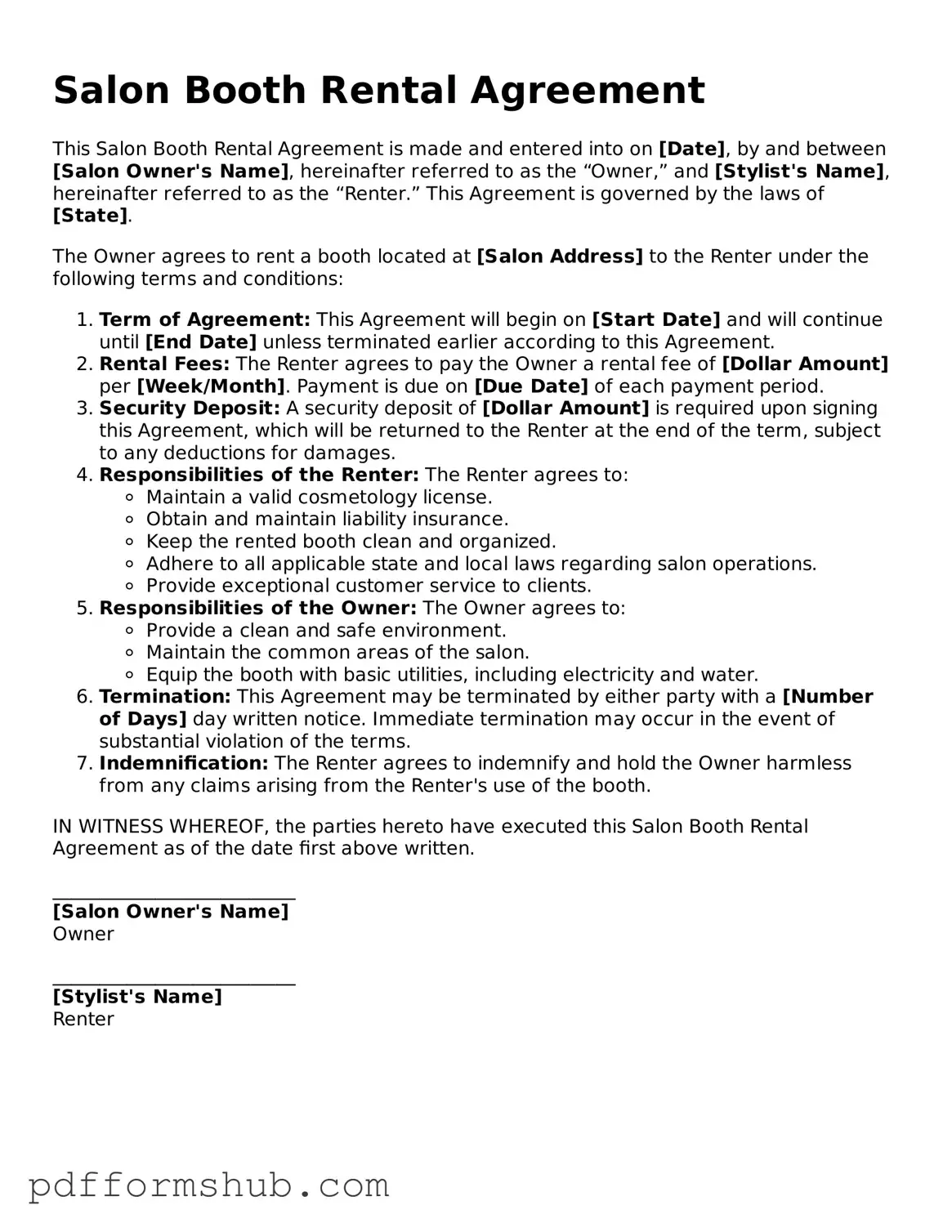Valid Salon Booth Rental Agreement Form
A Salon Booth Rental Agreement is a legal document that outlines the terms and conditions between a salon owner and a stylist renting a booth within the salon. This agreement typically covers aspects such as rental fees, duration of the lease, and responsibilities of both parties. Understanding this form is essential for ensuring a smooth working relationship, so consider filling it out by clicking the button below.
Customize Form

Valid Salon Booth Rental Agreement Form
Customize Form

Customize Form
or
Free PDF Form
Short deadline? Complete this form now
Complete Salon Booth Rental Agreement online without printing hassles.